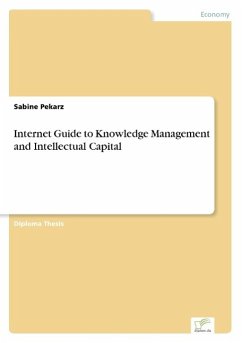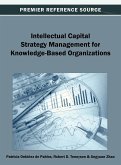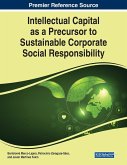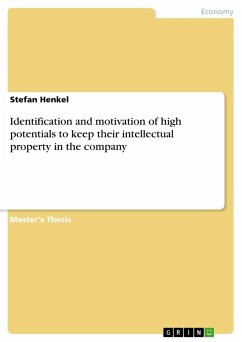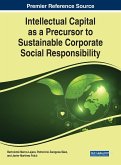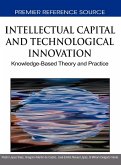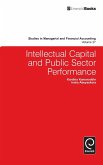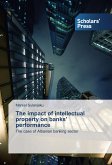Diploma Thesis from the year 2000 in the subject Business economics - Miscellaneous, University of Graz (Sozial- und Wirtschaftswissenschaften, Internationales Management), language: English, abstract: Inhaltsangabe:Abstract:
This survey has shown that, although the internet is full of information, it is difficult to find the information required fast. Before starting an internet survey, it is essential to be conscious of the intention of the search and the expected results and to translate this into one or more keywords. The intention of the keyword searches knowledge management and intellectual capital was to find out how the topic is treated on different pages.
The categorization by content has shown that a main part of the links can be assigned in the advertisement categories. This is the case for both, the hits of MetaCrawler and those of Umap. A further community of the results of the two search instruments is that the catego-ries knowledge base and best practices only take a small part whereas the categories content discussion and collection of resources are relatively well-attended.
Great importance has been attached to the categorie content discussion in the index and chapter 6 is fully dedicated to interesting links concerning the content. This is because the discussion of the topics, combined with definitions and explanations, is the background and the basis for the rest of the categories.
As the assignment to the categorie content discussion does not declare anything about the quality of the discussions, the index in chapter 4 has to be included in the study. Strictly speaking, a great part of those links is dedicated to advertisement and gives some explanations concerning the topics. It has been detected that most of the pages with content discussion give only a short introduction into the topic. The pages that examine the topics more closely are an exception to the rule. Five links of this minority are introduced in chapter 6. Two of them are very interesting pages concerning the content. They are listed at top position, because different opinions concerning knowledge management and intellectual capital are introduced, the topics are treated in great detail and the explanations are good and quite easy to duplicate.
In order to find out, if the results are capable to represent the totality, the reliability of the categorization, built up with Umap (artificial intelligence) and that built by human intelligence have been analyzed with the means of hypothesises. The test of the hypothesises, that are based on a comparison of the results and processes of the categorizations, has shown that the categorization by human intelligence is more reliable than that by artificial intel-ligence. Although the process of categorization by Umap is more objective, human intelligence has been successful. But how well do the instruments come off in a comparison, concerning the quality? Examining Umap and MetaCrawler for their capability to find relevant information on the internet shows that they can be considered as equal. Therefore, the decision which instrument to use, remains in the responsibility of the internet user. The test has been based on a scoring tabulation with the criteria: elimination of duplicates, dead and irrelevant links, number and quality of the search engines used, homogeneous language of the links and the possibility of graphical analysises.
Although the internet allows easy access to libraries, universities, newspapers, companies and so forth all over the world, internet researches often run into obstacles. There is no limitation of access and nearly no control of the information stored on the net. There-fore, the internet user has to select carefully the information received and has to be even more criti-cal than by using traditional media. Consequently, the user has to be able to discriminate the essential from unessenti...
Hinweis: Dieser Artikel kann nur an eine deutsche Lieferadresse ausgeliefert werden.
This survey has shown that, although the internet is full of information, it is difficult to find the information required fast. Before starting an internet survey, it is essential to be conscious of the intention of the search and the expected results and to translate this into one or more keywords. The intention of the keyword searches knowledge management and intellectual capital was to find out how the topic is treated on different pages.
The categorization by content has shown that a main part of the links can be assigned in the advertisement categories. This is the case for both, the hits of MetaCrawler and those of Umap. A further community of the results of the two search instruments is that the catego-ries knowledge base and best practices only take a small part whereas the categories content discussion and collection of resources are relatively well-attended.
Great importance has been attached to the categorie content discussion in the index and chapter 6 is fully dedicated to interesting links concerning the content. This is because the discussion of the topics, combined with definitions and explanations, is the background and the basis for the rest of the categories.
As the assignment to the categorie content discussion does not declare anything about the quality of the discussions, the index in chapter 4 has to be included in the study. Strictly speaking, a great part of those links is dedicated to advertisement and gives some explanations concerning the topics. It has been detected that most of the pages with content discussion give only a short introduction into the topic. The pages that examine the topics more closely are an exception to the rule. Five links of this minority are introduced in chapter 6. Two of them are very interesting pages concerning the content. They are listed at top position, because different opinions concerning knowledge management and intellectual capital are introduced, the topics are treated in great detail and the explanations are good and quite easy to duplicate.
In order to find out, if the results are capable to represent the totality, the reliability of the categorization, built up with Umap (artificial intelligence) and that built by human intelligence have been analyzed with the means of hypothesises. The test of the hypothesises, that are based on a comparison of the results and processes of the categorizations, has shown that the categorization by human intelligence is more reliable than that by artificial intel-ligence. Although the process of categorization by Umap is more objective, human intelligence has been successful. But how well do the instruments come off in a comparison, concerning the quality? Examining Umap and MetaCrawler for their capability to find relevant information on the internet shows that they can be considered as equal. Therefore, the decision which instrument to use, remains in the responsibility of the internet user. The test has been based on a scoring tabulation with the criteria: elimination of duplicates, dead and irrelevant links, number and quality of the search engines used, homogeneous language of the links and the possibility of graphical analysises.
Although the internet allows easy access to libraries, universities, newspapers, companies and so forth all over the world, internet researches often run into obstacles. There is no limitation of access and nearly no control of the information stored on the net. There-fore, the internet user has to select carefully the information received and has to be even more criti-cal than by using traditional media. Consequently, the user has to be able to discriminate the essential from unessenti...
Hinweis: Dieser Artikel kann nur an eine deutsche Lieferadresse ausgeliefert werden.

